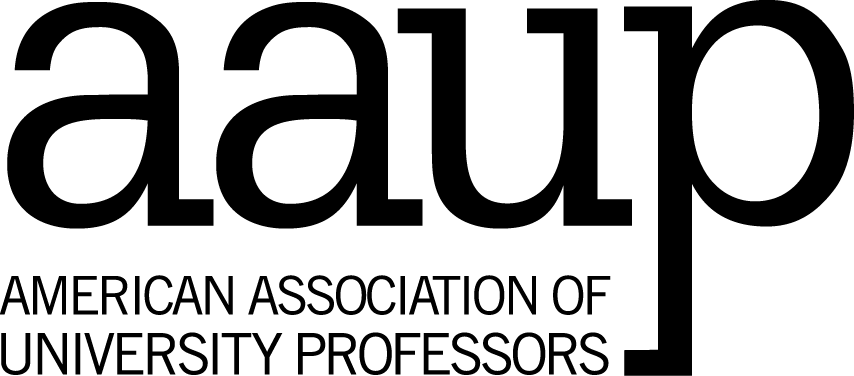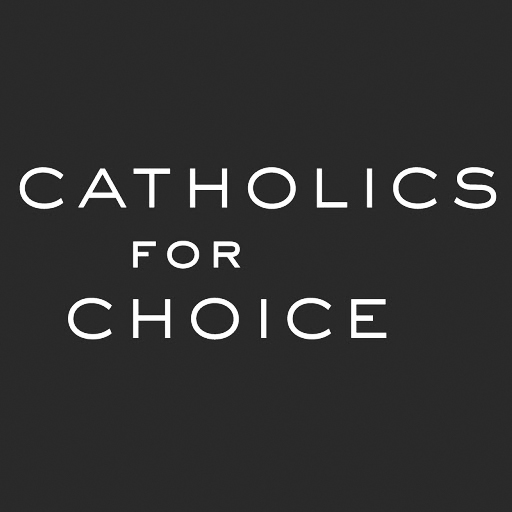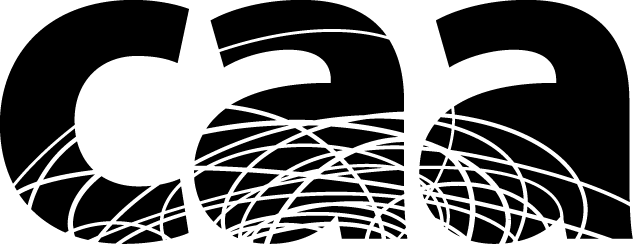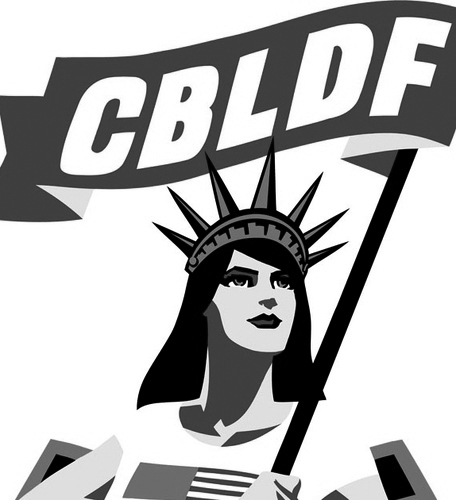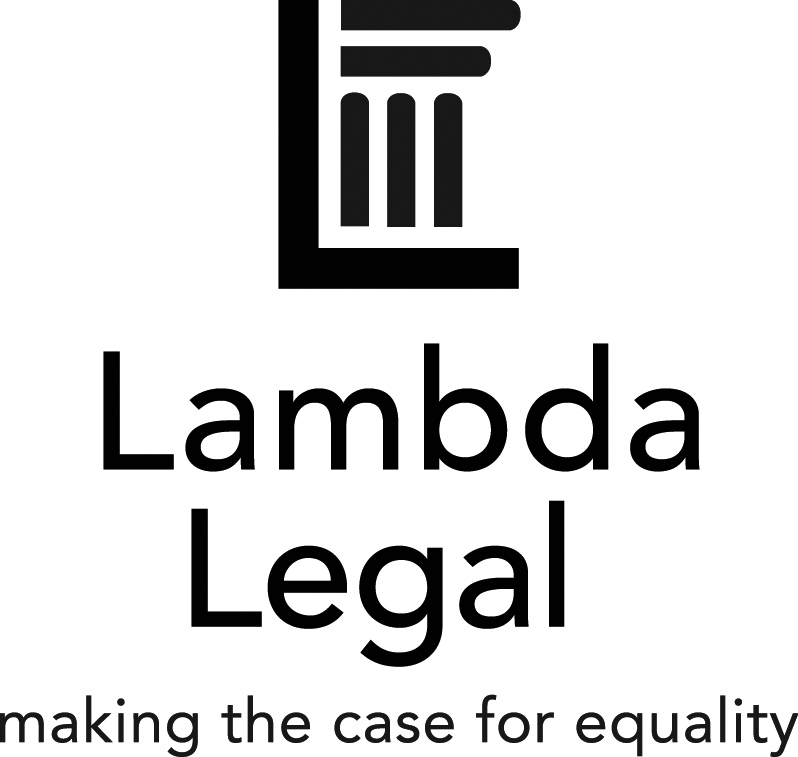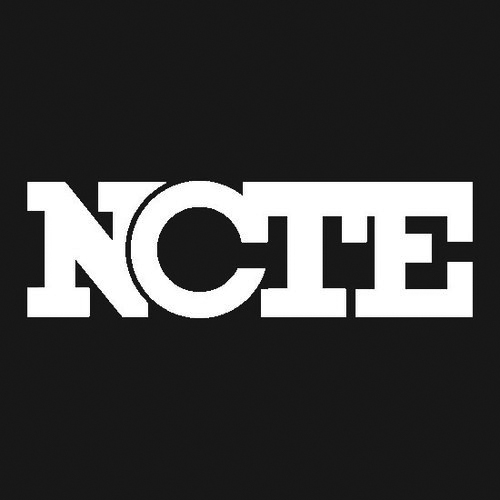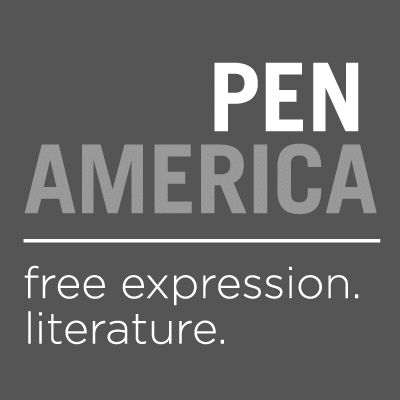Read contributions from:
American Association of University Professors
Since its founding in 1915, the AAUP has understood academic freedom to comprise three interlinked elements: the freedom to teach without external interference, the freedom to conduct research without ideological constraint, and the freedom to speak openly and without sanction on matters of institutional policy and on issues of public concern. To defend these freedoms AAUP has long recognized the crucial role of academic tenure and of shared university governance.
More than 200 scholarly and higher-education organizations have endorsed the definitive 1940 Statement of Principles on Academic Freedom and Tenure, which was jointly formulated by the AAUP and the Association of American Colleges and Universities. Numerous colleges and universities have integrated its language into their policies. Nevertheless, these principles are challenged almost daily. In Florida this year it was a faculty member’s decision to conduct a controversial in-class communications exercise; in New York an invitation to controversial speakers; and in San Diego the withdrawal of a visiting fellowship for a theological dissident. In many universities, AAUP is fighting administrative efforts to control faculty intellectual property, including patentable inventions and online class materials. In the wake of the U.S. Supreme Court’s 2006 decision in Garcetti v. Ceballos, faculty at public institutions are struggling to protect their legal right to criticize institutional leaders.
But the gravest challenge to academic freedom in the twenty-first century is the now-decades-long erosion of the tenure system and the widespread exploitation and abuse of contingent, especially part-time, faculty. Hired mostly on annual or even class-by-class contracts, and usually paid at rates more similar to casual than professional labor, these faculty members—now constituting over three-quarters of the profession—enjoy little job security and hence often minimal academic freedom, at least where they are not protected by collective-bargaining agreements, now probably the strongest means available to defend freedom in the classroom. Subject to intimidation by supervisors, many contingent faculty members engage in self-censorship, fearful that unconventional views, dissenting opinions, or innovative pedagogies might endanger their livelihoods.
Sadly this trend is unlikely to be reversed any time soon. It thus falls to the AAUP and to all members of the higher-education community to expand the defense of academic freedom—the freedom to teach, to innovate, and to speak out—to include more fully all who are engaged in teaching and research, whether full-time or part-time, tenured or contingent. Maintaining America’s achievements in democratic higher education may well depend on our success.
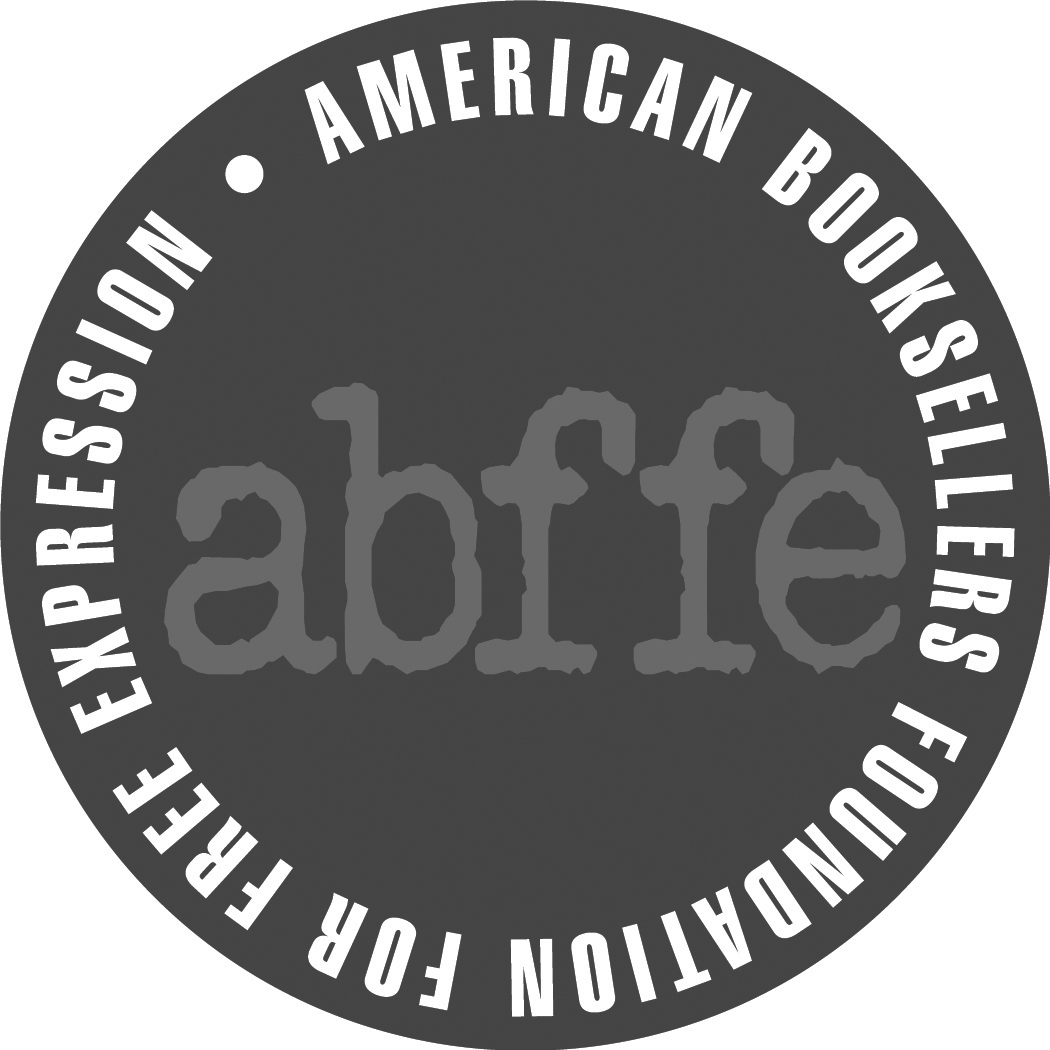
The American Booksellers Foundation for Free Expression, the bookseller’s voice in the fight against censorship, has been fighting for reader privacy since the day in 1998 when Independent Counsel Kenneth Starr subpoenaed the records of Monica Lewinsky’s book purchases from two Washington bookstores. We believe that Americans lose the freedom to read what they want when they fear the government is looking over their shoulder. Two years after the Starr subpoena, which was eventually withdrawn, we joined the successful fight to suppress a search warrant that sought customer records from the Tattered Cover Book Store in Denver. Then, in 2001, Congress approved the Patriot Act, which gives the FBI the power to search the records of people who are not suspected of criminal conduct. ABFFE is working with the American Library Association, the Association of American Publishers and PEN American Center to restore the protections for reader privacy. Edward Snowden’s revelations of government abuses have given new impetus to efforts to reform the Patriot Act.
ABFFE has also enlisted in the fight against the hundreds of challenges to books that occur in schools and libraries every year. It joined the National Coalition Against Censorship in founding the Kids’ Right to Read Project, which helps students, parents, teachers and librarians who are confronting censorship efforts in their communities. We are working to expand Banned Books Week, the only national celebration of the freedom to read. It now features a virtual read-out from banned and challenged works on YouTube.

It’s tough to pick but if we had to, and we do, there are two First Amendment issues that are jockeying for the title of “most pressing.”
The first has to be the administration’s aggressive pursuit of national security leaks and the corrosive effect it has had on our free press.
Recently, the administration commendably sought to narrow the circumstances in which it can investigate members of the press. These concessions, however, follow intense public concern over the unprecedented number of leaks prosecutions pursued by the current administration and the revelations of extremely invasive (and unnecessary) investigations into reporters and new organizations. As 2013 turns into 2014, and especially with the Snowden leak, there is no doubt that the tug-of-war between the two dray horses of the national security community and the Fourth Estate will continue in earnest.
The second isn’t technically a First Amendment issue—but it is emphatically one of free speech. That is, free speech advocates are increasingly concerned with the power wielded by online speech “platforms” like Facebook, Twitter and Google. These “gatekeepers” are, perhaps, even more impactful for free expression than federal, state or local governments. They have more direct power over what Americans can say, read, see and hear than the Federal Communications Commission, the Department of Justice or any member of state law enforcement combined.
These companies also possess their own First Amendment rights, leaving free speech advocates in something of a quandary. Fortunately, many of these companies should be applauded for adopting as permissive a speech policy as possible—and many have faced intense and unfortunate public criticism for doing so. As we continue to move from physical to virtual speech forums, this thorny but essential problem will only gain more prominence.
U.S. censorship is spreading in such insidious and complex manifestations. We have our work cut out for us! Library challenge reports to the Office of Intellectual Freedom (OIF) grew in 2012-13 to 460, probably 1/5 of the national total. This year’s #1 banned book, Captain Underpants by Dav Pilkey, is the gift that keeps on giving. Why? Because these popular, silly books are read by parents, with their children, all over the country. The potty humor makes parents roll their eyes and kids giggle. The absurdity of banning books in order to attack perceived moral problems is exemplified by this year’s winner.
A far more complex problem lies in libraries filtering the Internet. Google and ALA recently marked the 10th anniversary of the Children’s Internet Protection Act (CIPA) with a symposium of experts and a consensus of what we have all suspected: over or under-filtering happens 20% of the time; students can easily hack filters; poor people are more likely to have their information filtered; and filters can make it impossible to teach Advanced Placement (AP) courses. Filters are a very insidious barrier because sometimes library users don’t know what web sites they are missing! This blockage of constitutionally protected information is a real barrier to teaching young people how to think critically.
OIF is following the revelations of NSA surveillance with deep concern for the invasion of reader privacy. We are actively working with UK colleagues and elsewhere on an international library response.

The biggest threats to free speech these days are economic rather than legislative. Pay for writers is dropping, while thousands of online and paper publications are demanding that writers work for no pay (Huffington Post); absurd pay of $10 per article or less (The Content Authority, Demand Media); or simply using writers’ work without paying them at all (Google). In the face of these economic realities, the best journalists I know are abandoning traditional journalism and choosing instead to write for corporations which tightly control the messaging in every word they publish.
Meantime, newspapers are folding daily, or staying in print but depending on pre-packaged or “citizen journalist” content. Very few outlets now pay for in-depth reporting. In fact, investigative journalism—once a valued part of every respected news organization—is now seen as an unneeded luxury by most media outlets. New nonprofit groups such as ProPublica are promoting journalism-by-charitable-donation, trying to keep it from vanishing altogether.
Are governments and businesses happier in a world where there are no investigative journalists asking tough questions? Undoubtedly yes. But is the public better off?
![aaplogo[1].jpg](/wp-content/uploads/import2/aaplogo[1].jpg)
Publishers understand that the First Amendment is not an abstraction. The business of publishing is profoundly affected by threats to freedom of speech, including government efforts to curb media violence and “indecency,” attempts to hold publishers liable for illegal acts “inspired” by their works, domestic and foreign libel suits aimed at silencing publishers and authors, the threat to reader privacy from intrusive government surveillance, the weakening of fundamental protections for investigative journalists, and efforts to remove books with “objectionable” content from public and school libraries and classroom reading lists.
In the “Coda” to Fahrenheit 451 Ray Bradbury said: “There is more than one way to burn a book. And the world is full of people running about with lit matches.” Fully one-third of the books selected by the Modern Library as the 100 best novels of the 20th Century, including six of the top ten, have at one time or another been removed or threatened with removal from bookstores, libraries and schools. The Grapes of Wrath was actually burned in public shortly after its publication in 1939. Publishers are passionately committed to the fight to keep the books they publish freely available to adults and young people.
Publishers are also deeply troubled by the government’s intensifying war against investigative journalists. The Association of American Publishers is one of the organizations supporting passage of a federal “shield” law to help protect confidentiality of sources, with the caveat that such a law must be broad enough to cover book authors, including first-time authors, under its umbrella. Without such protection it will become increasingly difficult to produce the important books that hold government to account.
From our perspective, the most pressing challenge to free speech is the tendency to substitute a positive, healthy respect for religious people for a willingness to permit some ultraconservative extremist religious people to speak for all.
One high-profile example occurred in 2010, when the National Portrait Gallery removed “Fire in my Belly,” the art installation by the late David Wojnarowicz, from the exhibit “Hide/Seek: Difference and Desire in American Portraiture.” Through vivid and surreal images, including one of a crucifix crawling with ants, the video examined the “agony and suffering” of the artist’s partner, who was dying of AIDS at the time.
The marginal (but easily and loudly offended) Catholic League pounced immediately, falsely claiming the video was “anti-Catholic” and represented “hate speech.” They demanded that the federal government reconsider future funding for the Smithsonian. Smithsonian Secretary Wayne Clough swiftly pulled the video. Tragically, this tactic worked then as they are trying to make it work today: religious extremists are trying to have their cake and eat yours with their bogus claim that their “religious freedom” is being infringed upon in order to pressure the body politic to comply with their shopping list of demands.
In the case of “Fire In My Belly”, some free speech advocates stepped up and out to make the artwork available from a trailer outside of the museum.
While it was a defeat thanks to Secretary Clough, it was a victory of sorts. When you stood in the portable cabin and heard a tourist or museum visitor exclaim for the millionth time after seeing the art in question “really I can’t see what all the fuss is about…”
Of course, we need to respect religious voices, but not at the risk of censoring personal expression. The majority of people who use their faith to understand the world—rather than close themselves off from it—would prefer to make their own decisions about art. Let us fight together to keep it that way.
CAA takes action on issues that have a potential national or international impact on its members and the visual arts field. Acts of censorship concern the organization greatly. CAA is strongly committed to freedom of expression and has taken action to counteract censorship on many fronts during its 100 year history.
CAA has recently addressed the removal of objects from exhibitions at museum and university galleries such as the removal of David Wojnarowicz’s video “A Fire in My Belly” from the Smithsonian Portrait Gallery’s “Hide/Seek” exhibition in 2010; the removal of or destruction of individual works of art and monuments such as the destruction of Mali’s cultural heritage through military action where mausoleums and mosques were defaced and destroyed in Timbuktu this past year; the removal of works on permanent view on campuses and the threat of destruction such as the two sculptures by George Ettel and Robert Sestok at Michigan’s Macomb County Community College this spring; withholding photographic licenses for scholarly publications by artist’s heirs, such as those of Clifford Still, who are not in agreement with new interpretations; the political repression and incarceration of artists such as Ai WeiWei. All point to the increasing global concerns about censorship. And perhaps the most difficult to address is self-censorship by artists, scholars and curators who choose to avoid controversial topics to create, study and exhibit for fear of being criticized and ostracized by colleagues or cut off from resources held in private collections.
When it witnesses acts of censorship, CAA approaches the source of such actions to remind them of ethical and practical approaches to resolving issues. CAA publicizes its concerns and its responses through CAA News, website and social media sites, giving is membership the information it needs to take additional action when appropriate.
As comics and graphic novels become a more significant part of the cultural landscape, attacks on their content are plaguing individuals and institutions alike. In recent years readers of Japanese comics have been targeted by police and customs officials with false accusations of possessing obscene material or even child pornography. At the same time, challenges to graphic novels in libraries and schools occur on a near monthly basis. CBLDF stands vigilant against these challenges by providing legal aid, writing letters of support, and producing important education tools to create better understanding of comics and their role in the current culture. Comics are a vital aspect of 21st century artistic expression. The struggle to protect the freedom to read comics is more important than ever.
The play’s the thing,” or so it is said.
But at a high school in Deerfield, IL, parents tried to stop other people’s children from reading Tony Kushner’s Angels in America. At a school in Wilton, CT, students were stopped from presenting their own play about the Iraq War. At universities across America shows like Sondheim & Weidman’s Assassins and Chris Durang’s Sister Mary Ignatious… have been challenged over issues of politics, sexuality, religion or language, and administrators have imposed their own limited views on people who are there, ironically, to expand their worlds.
The censor’s arm is reaching beyond the schoolroom. In Carrollton, GA, the mayor shut down his town’s production of The Rocky Horror Picture Show. Ragtime and To Kill a Mockingbird were challenged by civil rights groups in Illinois and Florida because they use the “N word”, despite that these are two works that plead against racism. A play about the Israeli-Palestinian conflict was cancelled by a NY non-profit because of pressure from its own board. In Colorado and Chicago, theaters presenting work that required smoking on stage were prohibited from doing so under local anti-smoking statutes that have no exception for theatrical productions, as they do in NY and other cities. “Fair use”, too, is being diminished as playwrights who dared to write about powerful public figures or who parodied works owned by wealthy companies were threatened with lawsuits.
Playwrights only have their words. And to defend those words, the Dramatists Guild has formed the Dramatists Legal Defense Fund.
Because words matter.
Lambda Legal is committed to achieving full recognition of the civil rights of LGBT people and those with HIV through impact litigation, education and public policy work. Fundamental to that mission is attaining respect and acceptance of LGBT youth in schools. The First Amendment is a key tool in addressing bullying because free speech fosters an environment that seeks, welcomes, and values LGBT people. Simply put, the way to combat hateful speech is through powerful, affirming speech.
In the landmark case of Tinker v. Des Moines Independent Community School District, the Supreme Court stated: “It can hardly be argued that either students or teachers shed their constitutional rights to freedom of speech or expression at the schoolhouse gate.” Since then, Lambda Legal has secured federal court rulings that schools must protect gay students from violence and harassment and that gay-straight alliances must be allowed to meet under the same rules as other student groups. These cases defend what should be undisputed propositions – namely, that students attending public schools have a constitutional right to express themselves, to feel safe and respected, and to live without fear.
Lambda Legal and our plaintiffs will continue to bring First Amendment claims to protect the rights of LGBT students in school. By continuing to give young members of our community a voice, we can move closer to creating school environments where all students are respected equally for who they are.
The MLA actively opposes all forms of censorship in the United States and around the globe. It upholds the right of scholars, teachers, and artists to freedom from censorship not only in their statements as citizens but also in their teaching and scholarly work. Historically, tenure was designed to ensure the freedom of university faculty members to express their views openly in the classroom and in the public sphere. and to put those views up for debate. In a university climate in which over seventy percent of instructors hold positions off the tenure track, however, this fundamental academic freedom is severely threatened.
Over the years, the MLA has been vigilant in fighting censorship. The dangerous political uses of censorship have been analyzed in scholarly articles published by the association and in a special issue of the MLA’s premier journal, PMLA. The association has spoken out against attempts to dismantle ethnic studies programs in the United States—a form of curricular censorship. In the spirit of a free exchange of ideas, it has lobbied Congress for the right of scholars and artists to travel across national borders and to be admitted to the United States. The MLA has supported the freedom of instructors at colleges and universities to construct course syllabi without legislative interference. It has also spoken out against the inclusion of unsolicited opinions from outside the university in faculty appointments and promotion reviews. In advocating working conditions and regularized appointments for contingent faculty members, the MLA is also fighting for the free exchange of ideas that is at the core of a democratic education. In doing so, the MLA is upholding the explicit statements by the AAUP that “[b]oth the protection of academic freedom and the requirements of academic responsibility apply not only to the full-time probationary and the tenured teacher, but also to all others, such as part-time faculty and teaching assistants, who exercise teaching responsibilities.”
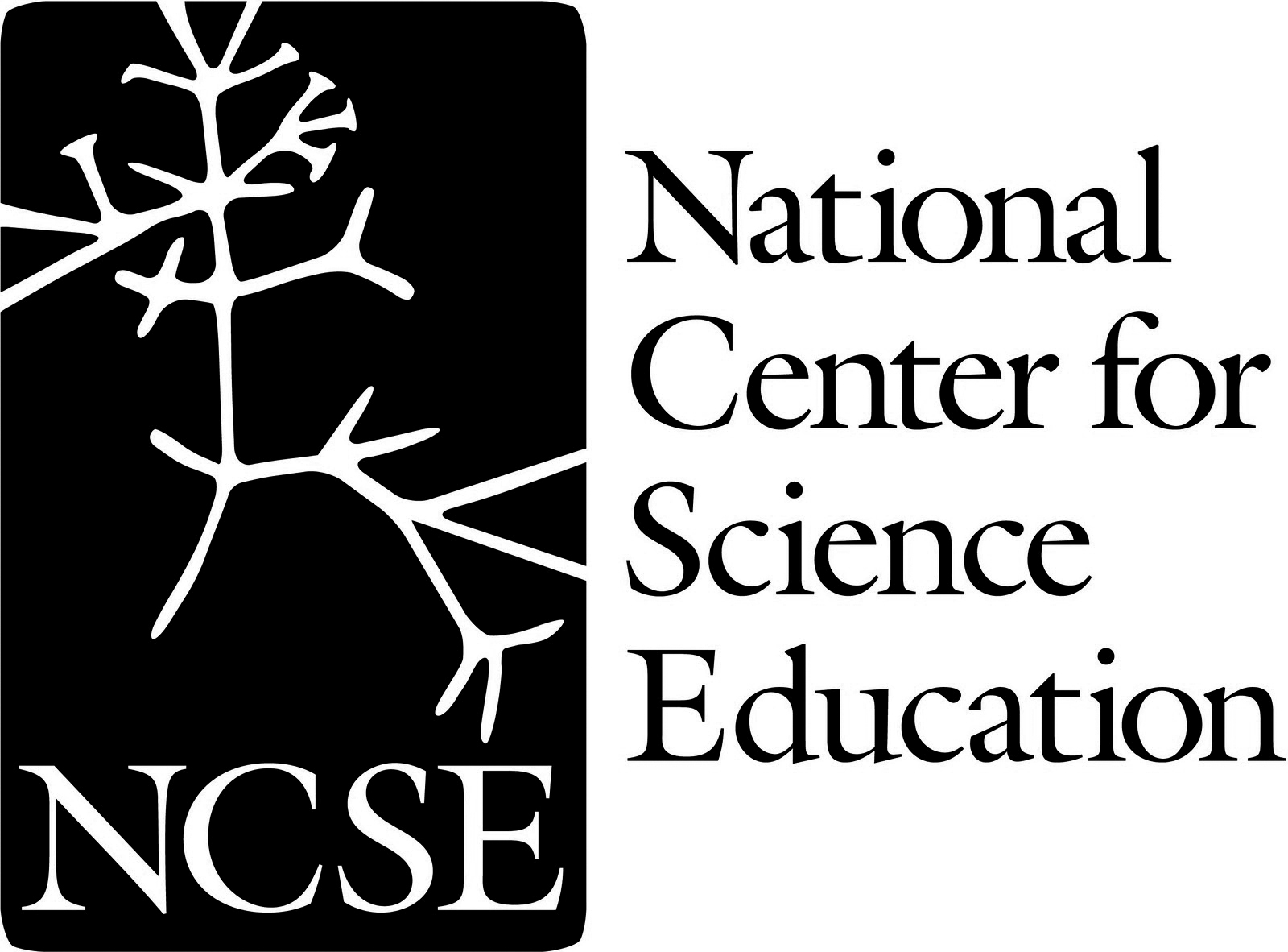
The mission of the National Center for Science Education is to defend the teaching of science against ideological attack. Evolution is the traditional target of such attacks, with climate change joining it in recent years.
The most famous attack on the teaching of evolution was Tennessee’s ban, under which John Thomas Scopes was prosecuted in 1925. Eighty-eight years later, censorship aimed at evolution still persists, with teachers pressured not to teach evolution or to teach creationism (whether “creation science” or “intelligent design”) by way of “balance” and with libraries urged not to shelve books on the topic. Since the motives for such pressures are religious, the First Amendment’s ban on the governmental establishment of religion is invaluable in countering them. So promoting the understanding of the First Amendment is important to NCSE’s work.
Equally important to NCSE’s work is countering misunderstandings of the First Amendment, which science deniers have spuriously invoked to claim that they have the right to have their views included in the curriculum. Of course, the First Amendment guarantees their right to hold and express their beliefs publicly – but not the right to teach their beliefs in public schools, where the curriculum is supposed to reflect the best available knowledge in the relevant field. Anything less would compromise the integrity of science education and impair the ability of students to participate in society as scientifically literate citizens.
Science education needs freedom of thought, inquiry, and expression, and it also needs for those worthy ideals not to be twisted in the service of pseudoscience. On both counts, that’s why NCSE is a proud member of the National Coalition Against Censorship.
National Council of Teachers of English
It’s crucial now when new standards are being introduced in schools and the selection of texts deemed suitable for students is undergoing renewed scrutiny that educators at all levels and community members keep in mind the tenets of NCTE’s The Students’ Right to Read. This guideline emphasizes both:
· “the right of any individual not just to read but to read whatever he or she wants to read [as] basic to a democratic society” and
· the value of teachers’ professional knowledge and judgment in selecting and using materials appropriate for their students to meet the educational objectives of courses, curricula, and state standards.
NCTE respects the right of individuals to be selective in their own reading. But for the same reason, we oppose efforts of individuals or groups to limit the freedom of choice of others or to impose their own standards or tastes upon the community at large. If America is to have a democratic citizenry, educators must introduce students to a broad spectrum of ideas and then guide them through reading, writing, and discussion to think critically, act responsibly, and be productive in our diverse and ever-changing world.
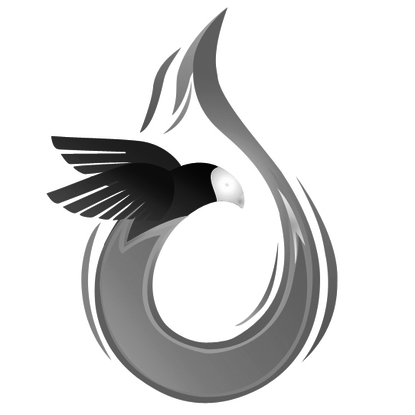
Students in K-12 schools have long had to fight for freedoms adults take for granted. Dress codes and Pledges of Allegiance and day-to-day decisions by school employees have long challenged students’ right to free speech.
What is new in recent years has been the belief by school officials that they now have a right to govern students’ use of social media, even in the students’ private lives. Last year, a high school senior in Indiana was expelled for Tweeting a message to his followers – from his home late at night – that included the F-word. In cities across America, students are being called into principals’ offices to explain things they wrote on Facebook or other online forums.
In the Vietnam era, the Supreme Court, responding to a dress code used to muzzle students opposing the war, told schools, “It can hardly be argued that either students or teachers shed their constitutional rights to freedom of speech or expression at the schoolhouse gate.” But many schools have continued to disregard those rights. And in the internet era, some schools are taking it even further, not only insisting students surrender their free speech rights at the gate, but also prohibiting students from retrieving those rights when they go home again.
For more than a decade, civil liberties and freedom of expression organizations have sounded alarms over the rapid expansion of surveillance capacities and programs in the United States. For much of that time, efforts to challenge new surveillance powers have been hampered because those powers have been shrouded in secrecy; a lawsuit brought by PEN American Center and several co-plaintiffs challenging the Foreign Intelligence Surveillance Act Amendments Act, for example, that might have revealed important information was dismissed by the U.S. Supreme Court, which ruled that because plaintiffs could not show that they had actually been directly harmed by National Security Agency surveillance programs, they lacked standing to challenge those programs in court. on technical grounds.
Now, thanks to recent, dramatic leaks about the nature and scope of NSA telephone and internet monitoring, the public knows that these activities, which PEN went to court to expose, are in fact happening, and on an even broader scale than previously thought. Yet many Americans have met even these revelations with a shrug, arguing that if they have nothing to hide, they have nothing to fear, and many policy makers continue to herald the programs’ benefits in preventing terrorist attacks. It is now clear that challenging ever-expanding surveillance powers and technologies will require more than merely penetrating official secrecy around the nature and scope of the programs. In fact, we must begin to answer the questions that are at the heart of the Supreme Court’s decision: How do we know, and how can we demonstrate, that pervasive surveillance—especially the subtle, complex cocktail of governmental and commercial surveillance that is taking shape in the United States, is actually harming freedom of expression and creative freedom? This is one of the most urgent challenges facing free expression advocates in the United States. Only by defining the actual and potential harms of our new surveillance powers can we be sure these powers won’t define us in the future.
Project Censored monitors and analyzes censorship in the US press while promoting media literacy and critical thinking skills. Our new annual report on the most underreported and censored stories is Censored 2014: Fearless Speech in Fateful Times (October 2013).
Among the most significant challenges we face today is the ever growing war on whistleblowers and journalists. From Bradley Manning and John Kiriakiou to Thomas Drake and Edward Snowden, the US government, now even more so under the Obama Administration, has escalated its attack on those who try to bring to light unpopular truths. Whether about our foreign policy or the state of our diminishing rights of privacy, of speech, and the press, President Obama’s actions toward those who tell these unpopular truths has been in direct contradiction to his campaign promises and many public pronouncements purportedly lauding transparency and accountability in government. We at Project Censored see this as one of the key issues of our time.
In an age where the very plutocrats that govern our society are the same people who claim jurisdiction in determining who is a journalist, and what narratives are acceptable for debate and discussion, we need “a clarion call for truth telling” as Daniel Ellsberg has put it—a call for civil courage in defense and support of a truly free press. Our future as a free and open society, as a democratic republic, depends on free expression and freedom of the press. The time to act and protect these rights, to fight against forces of censorship where reporting what is going on in our society is becoming increasingly criminalized, is now. We hope you will join us in these common struggles.

The Society of Children’s Book Writers and Illustrators is comprised of approximately 23,000 creators of children’s books—authors, illustrators, publishers, editors and agents—from America and around the globe. Our members are on the front line, creating a body of literature for today’s children that will be read for generations to come. We believe in the freedom of expression and fully support a child’s right to read from the wide-ranging canon of books that have been created lovingly, responsibly and expressly for them.
Nowhere do we see more challenges to freedom of expression than in the field of children’s books. There are many adults who, under the umbrella of protecting children, feel they know what is best for children to read. This censorship approach has raged rampantly in our field for many years. Award winning books and authors have been banned or challenged on a regular basis. Children have been deprived access to some of our best writers, some of our best minds, and ironically, some of the most responsible voices in support of moral choices. The censorship our industry has been subjected to raises the fundamental question of our rights in a free society. Who will be the censors? What person or community will decide what is appropriate material for children? What role does this leave for individual families, parents and religious institutions?
In light of the realities of war, economic struggle, racial strife and a wildly spinning moral compass, we cannot deprive children of books that provide them the very tools to understand and navigate these difficult realities. Books for children and young people serve a vital role in the development of values, and the SCBWI believes that all children should have an opportunity to read freely and explore the important ideas our books present.
Nearly half a century ago, the Supreme Court told us that neither teachers nor students “shed their constitutional rights to freedom of speech or expression at the schoolhouse gate.” But today, the gate that once safely confined school censorship authority is swinging both ways, hitting students on the way out. Censorship follows students home in the form of drastically overbroad statutes and regulations that, while enacted under the guise of “bullying prevention,” in fact expose students to punishment—and even criminal prosecution—for harmless jokes and editorial commentary. Not long ago, student journalists censored in their on-campus publications could safely start “underground” media using their own time and money and be assured of freedom from school content control. Those days are over. The federal courts have largely abdicated their role of protecting vulnerable young speakers, affording schools nearly unreviewable deference even for the most irrational overreaction. The Fifth Circuit U.S. Court of Appeals spoke for many in the judiciary in rejecting as “frivolous” the First Amendment claims of a high school cheerleader punished for a silent, non-disruptive protest after being raped by a classmate: Children, wrote the judges, are nothing more than “mouthpieces” for their schools’ messages. The SPLC’s “Cure Hazelwood” campaign, online at www.curehazelwood.org, is heightening awareness of the cancerous toll of a generation under the U.S. Supreme Court’s erroneous ruling in Hazelwood School District v. Kuhlmeier—a ruling that, while nominally about the censorship of a high school newspaper, has become an open-ended license to discipline even 50-year-old graduate students for speech that challenges their colleges’ authority.

Woodhull Sexual Freedom Alliance is one of the few organizations wholly devoted to preserving sexual freedom as one of society’s foremost fundamental human rights. With controversial topics like sexual equality and autonomy comprising the core of Woodhull’s mission, the organization’s most pressing challenge to free speech is—and will likely always be—advancing the public discourse in the face of those whose goal is to silence sexual expression. Woodhull forces the public to examine themselves, their government and their culture in the quest for individual liberty. Advocating for personal autonomy and the basic right to express and enjoy sexual freedom with integrity and free from governmental interference, puts Woodhull at constant risk of censorship. Everyday, Woodhull willingly undertakes the crusade against sexual ignorance, hatred, misconception, discrimination, and repression, all rooted in decades of misguided societal mores. In doing so, Woodhull routinely encounters obstacles from those opposing open sexual discussion—both governmental and private. Sustaining a social dialogue involving such personal topics is far from easy and promises to be an obstacle for Woodhull and all others questioning the status quo, for years to come.
Woodhull is constantly working to advance the recognition of sexual, gender and familial diversity. Diversity by its very definition signifies something different; something unconventional. Human nature is to fear change. Fully recognizing this uphill battle, Woodhull, nonetheless, continues to call for cultural transformation in the name of tolerance and social acceptance. Without the constitutional right to freedom of speech provided by the First Amendment, Woodhull’s pioneering civil rights efforts would essentially be nonexistent. The First Amendment not only permits sexual expression, but it actually encourages and seeks to cultivate such controversial speech. Acting as a driving force behind a sexual movement inviting individuals to challenge mainstream notions of societal norms often requires broaching sensitive subjects or vocalizing unpopular thoughts. But it’s that kind of exchange of controversial ideas that makes Woodhull-driven discourse even more crucial to the evolution of public policy and ultimately, social change.
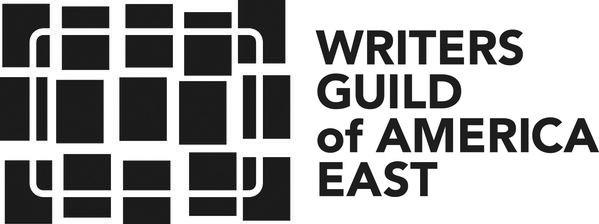
There are two freedoms at the very core of the Writers Guild of America, East. One is the freedom to collectively bargain as a labor union, protecting the livelihoods of each and every member, working for fair treatment and security for themselves and their families. In the process, we hope by example to help better the lives of all.
That freedom could not exist without the other, and that is freedom of speech. Freedom of expression gives voice to every man and woman who desires to speak out and to create. It allows our members to write the stories that need telling without fear of suppression, and to have access to the vast communications highway that conveys both our stories and the information that inspires creativity and truth, whether in a screenplay, episodic TV script or hourly newscast.
To that end, preservation of internet freedom—net neutrality—is a fundamental freedom of speech issue for the Writers Guild, East. Equal access to the Internet for every individual, no matter their status, income, race, gender or nationality is essential to liberty and creativity. We fully recognize that internet piracy is a real and pernicious threat for our members but believe that fighting against piracy while fighting on behalf of internet freedom are not mutually exclusive propositions.
We also oppose the media consolidation that has given power to a handful of international mega-corporations, monoliths that threaten to quell independent, local voices and diversity. That is why we have been so supportive of public media and have opposed efforts to censor it or to slash its funding.
Simply this: without freedom of speech, there would be no Writers Guild, East.


